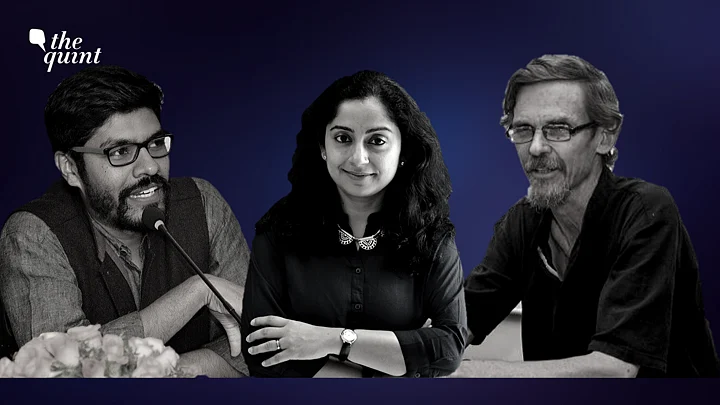Shamika Ravi, former advisor on PM Modi's Economic Advisory Committee, has triggered a debate by arguing that "higher education is not for all."
While fierce protests against fee hikes at public universities like JNU and in several colleges across the country continue, the University Grants Commission is mulling issuing directives to private universities regulating their fee structures.
Ravi's statement was in reaction to news about the UGC's planned action. She wrote, "Some people argue that education is a public good- so must be available to all for ‘free’, like say, roads. It is important to understand that while school education can be treated as a public good (therefore RTE) but #HigherEd cannot be such. It is not for all.”
But as you would expect, economists are divided on this contentious issue. Speaking to The Quint, economists Jean Dreze and Rohit Azad differed from Ravi's assertions. Here are their broad points of contention.
Shamika Ravi: ‘Higher Education Is Not for All’
Rohit Azad: ‘Higher Education a Shot at Equal Job Opportunities’
Speaking to The Quint, Rohit Azad, Professor of Economics at JNU’s Centre for Economic Studies and Planning, vehemently disagreed with Ravi’s assertion on higher education not being for all, “Higher education and not primary education is what provides people opportunities in terms of jobs. The biggest pro of higher education being for all is that you would be providing the disadvantaged by their caste or the poverty they are born into, the right to an equal opportunity for jobs.”
“Why should they be bound to vocational training and apprenticeships, getting into factories and doing blue-collared jobs, and not get higher education so they can vie for better jobs? Then you are binding them by saying, Tumhari zindagi aisi hai, aur aisi hi rahegi (This is how your life is, and this is how it shall remain.)’”Rohit Azad
The Point-By-Point Counter
- On Ravi’s point about Indians having revealed their willingness to pay for quality education, Azad countered, “They may not be a lot in terms of percentage of population, but there are a huge number of people in the upper middle class and upper class. So just because they can pay exorbitant fees, doesn’t mean that “Indians have revealed their willingness to pay”. The rich have revealed their preference, but should higher education be accessible only to them?”
- On Ravi basing her argument on how “vocational skills programmes, apprenticeship etc are better suited than college degrees” for employment, Azad says, “Low quality jobs are still available. The most unskilled jobs have the lowest unemployment rate and the higher skilled degrees have the highest unemployment rate. So, the pattern of employment is skewed. Therefore, the government should be looking at its economic policies and the pattern of growth.”
He elaborates, “The reason why people are unemployed despite having degrees has nothing to do with the quality of degrees. It has to do with that jobs are just not there. Just because I have a degree, whether this degree or that, doesn’t ensure jobs.”
Jean Dreze: ‘Let’s Look at the Equity Argument’
Development economist Jean Dreze told The Quint, “There is an equity argument that needs to be looked at. Higher education is a very important means of liberation for the massive groups in India who have been marginalised for centuries. So for them to have an access to higher education is extremely important. I do agree, however, that elementary education is more important and more of a priority, so it is a matter of balance and timing and so on.”
Would UGC Regulating Fees at Private Universities Be a Good Move?
Welcoming the UGC’s decision to consider regulating fees at private universities, Azad says, “Higher education is a public good, any education is a public good. Including education at private universities. Just because they are private institutions doesn’t mean that they can have profit-making as their only motive, not when it comes to education. But it’s also hypocritical of the UGC, which is doing the opposite for public education! There needs to be greater investments made into higher education at public universities.”
Dreze feels that the focus needs to be on the public universities, “I agree that strengthening the public institutions is more important that imposing caps on private institutions. By capping the fees at private institutions, you are mainly subsidising privileged people. Whereas providing quality education in the public sector, for free or at very reasonable fees, that does a lot for the underprivileged.”
(At The Quint, we question everything. Play an active role in shaping our journalism by becoming a member today.)
